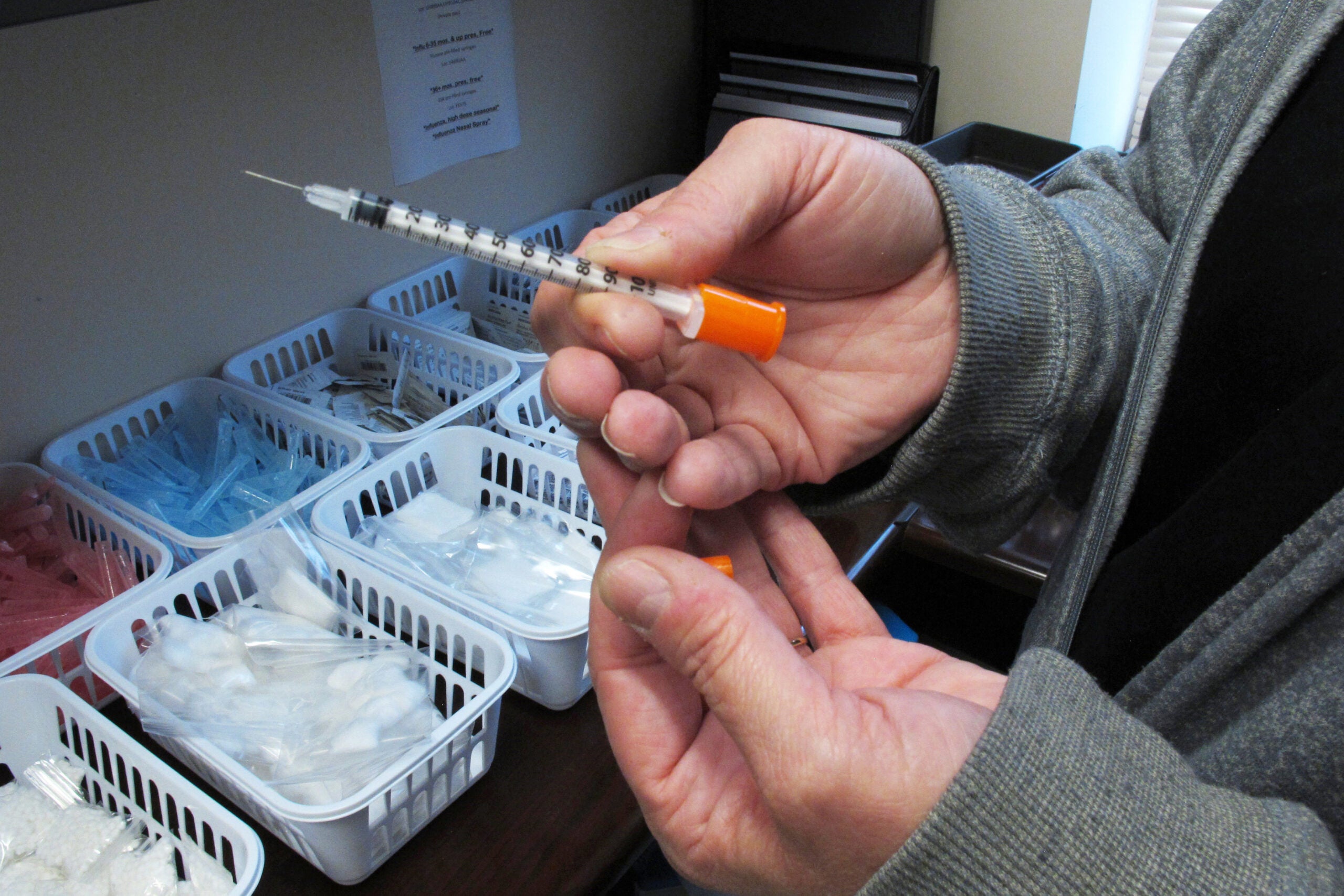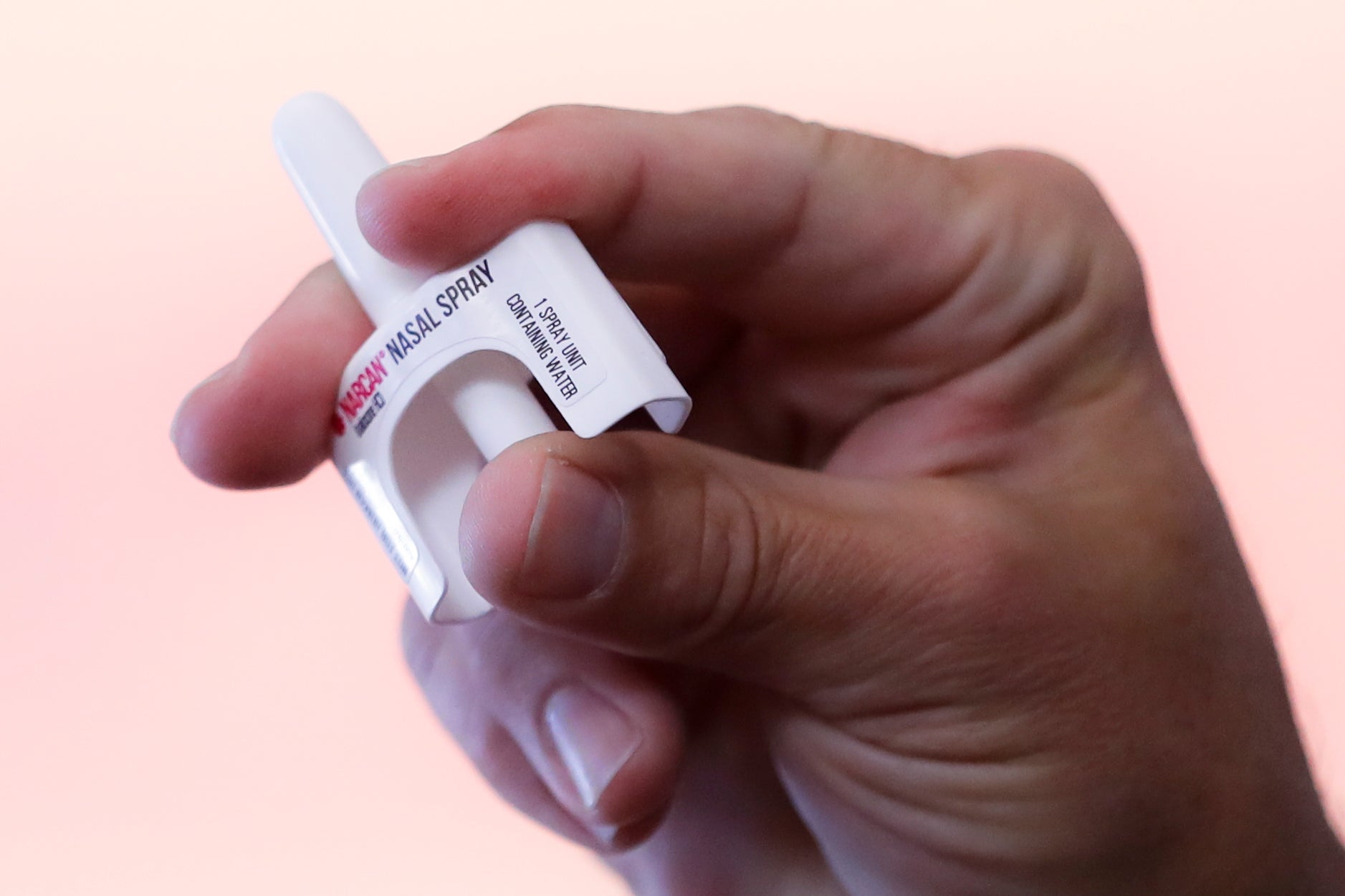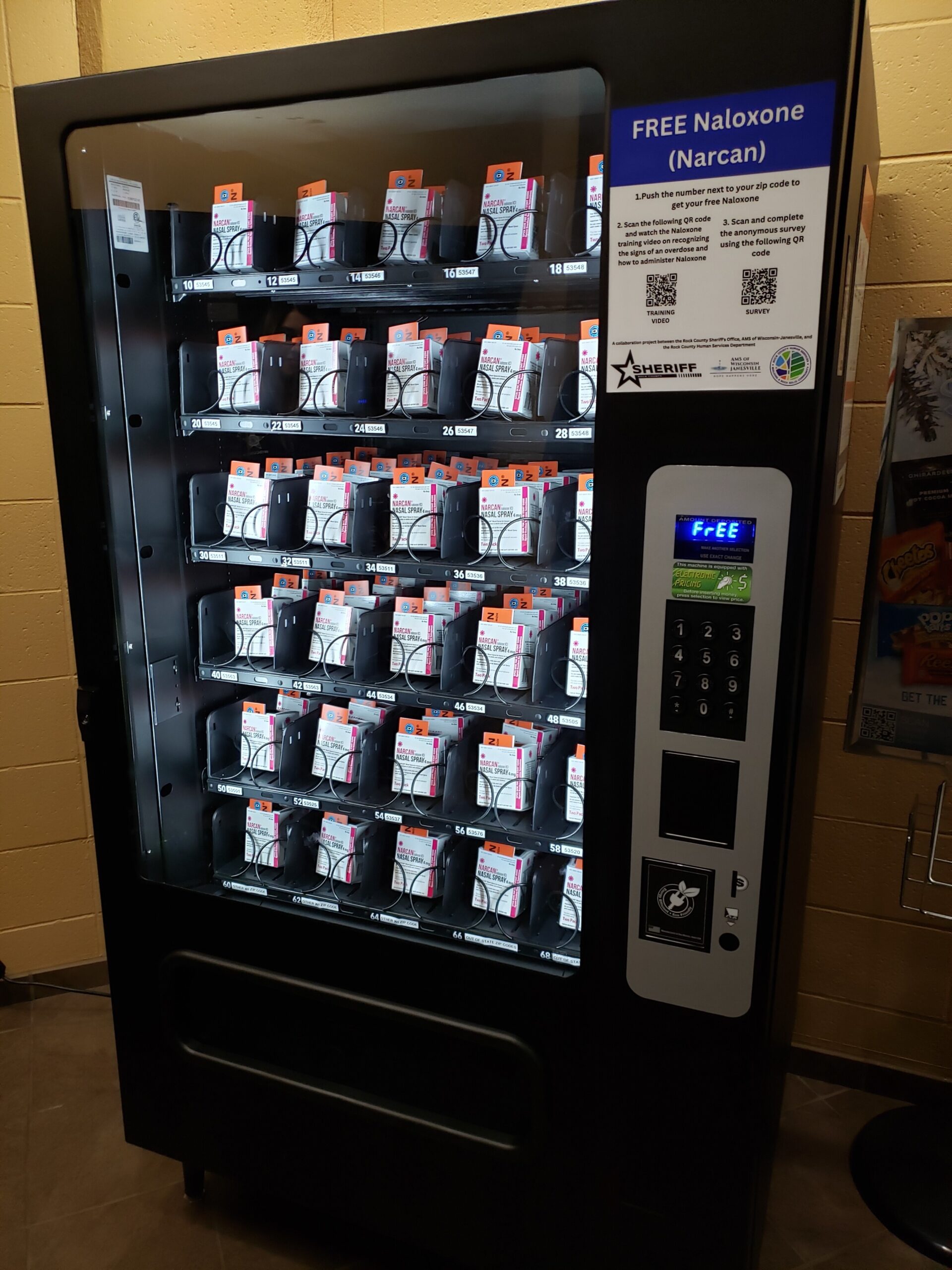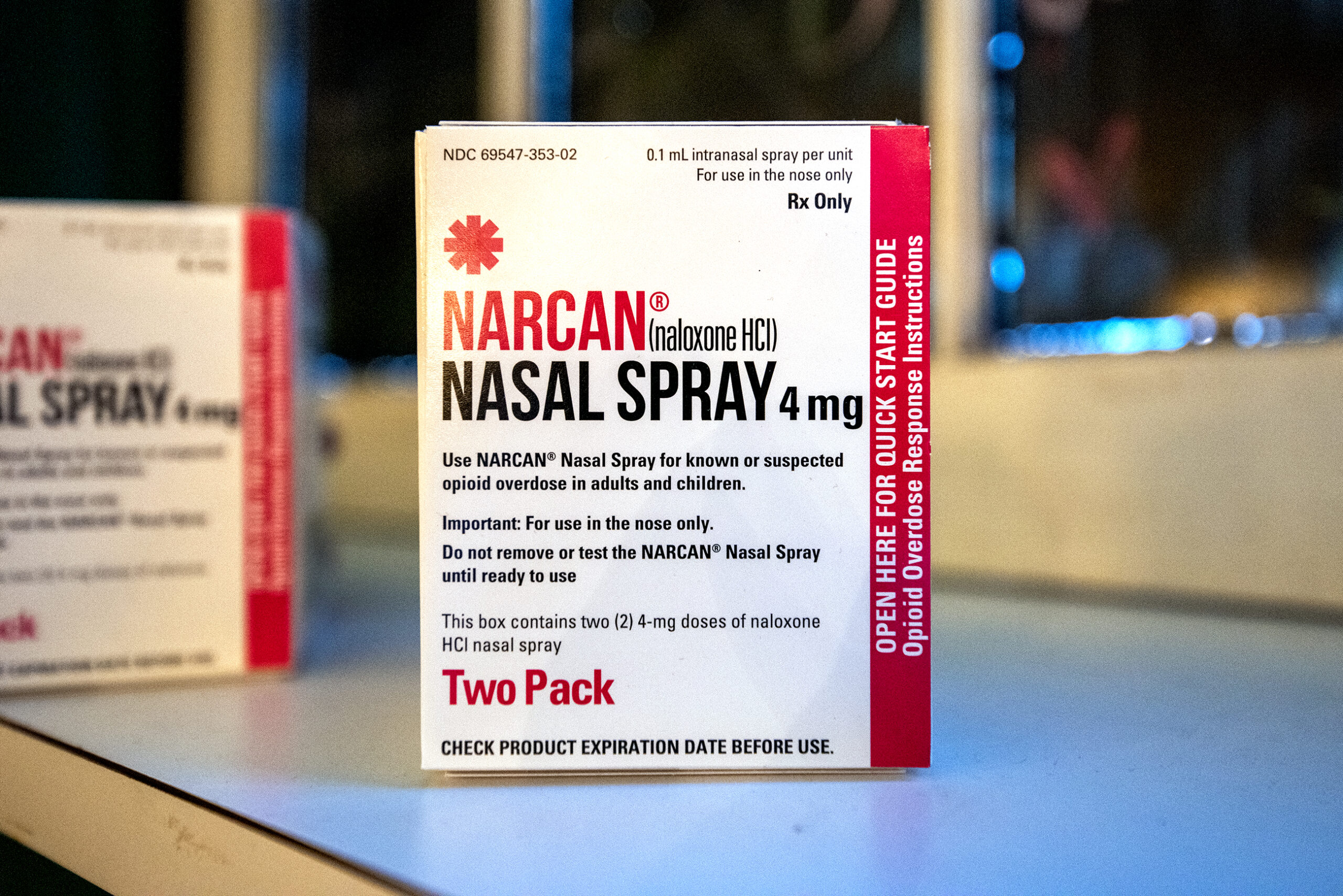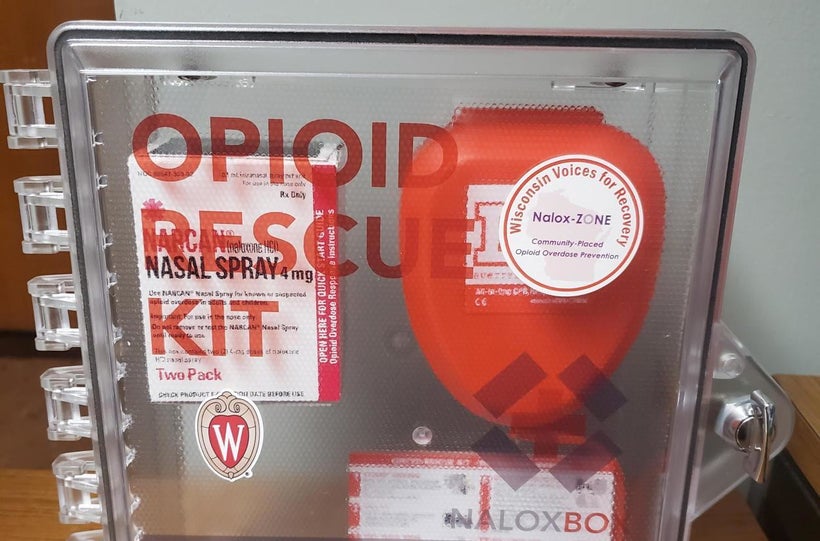In Wisconsin, cases of acute Hepatitis C have skyrocketed, going up 450 percent from 2011 to 2015. The majority of infections resulted from injection drug use, according to state health officials.
The Centers for Disease Control and Prevention encourages needle exchanges as a way to prevent drug addicts from spreading disease.
“We are in a place that’s been pretty needle exchange positive for the last couple of years now,” said Scott Stokes, director of prevention services at the AIDS Resource Center of Wisconsin. “For a while, many different communities didn’t really want to even talk about the possibility of bringing such a program into their community, and now it really is being seen in a different light. It is seen as a tool to prevent the spread of HIV and Hepatitis C.”
Stay informed on the latest news
Sign up for WPR’s email newsletter.
There’s also another reason for the changing opinions.
“They also realize that needle exchange programs are on the front lines and are able to deal with people that might be at risk for an opioid overdose,” Stokes said. “So it is being looked at with much more favor than it has in the past.”
Needle exchange programs around the country have created controversy. A weekly syringe exchange program was started in Ohio after officials declared a public health emergency because of high rates of Hepatitis C.
An analysis in the CDC’s Morbidity and Mortality Weekly report released Thursday looks at whether states are promoting or preventing access to clean needles. Wisconsin law does exclude needles and syringes from drug paraphernalia laws.
“So we didn’t have a lot of the issues that many communities had related to legality of (needle exchange) programs,” Stokes said. “And were able to start them without going through a legislative process. So it was very fortunate for us in Wisconsin to begin the programs.”
The report — released Thursday for Hepatitis Awareness Month, which is this month, and ahead of National Hepatitis Testing Day on Friday, May 19 — also looked at whether states allowed the retail sale of syringes without a prescription to addicts who inject drugs. Wisconsin does not have a law prohibiting such sales, but some stores do not allow over-the-counter sales.
“Many of the stores require a prescription for the sale of syringes and some do not. So it’s kind of hit and miss. But there aren’t any legal barriers to that,” said Stokes.
Nevertheless, the CDC report said Wisconsin’s laws aren’t as comprehensive as states such as Maine, Nevada and Utah, where there are fewer barriers to needle exchange programs. The study also examined whether states had permissive or strict sobriety requirements to get costly Hepatitis C treatment under Medicaid. Wisconsin was considered strict. It requires a six-month period of sobriety.
But preventing disease from spreading goes beyond just the needles, Stokes said.
“We know that most of the folks we work with say that they do not share their needles with anybody, so that’s going to prevent the transmission of Hepatitis C to others,” Stokes said. “But when you talk about the other materials that are used for injection like the cotton filter, or the cookers that they mix the drug in, people are sharing that. And to me I believe that is the driver of the spread of Hepatitis C in Wisconsin and across the nation.”
Wisconsin Public Radio, © Copyright 2025, Board of Regents of the University of Wisconsin System and Wisconsin Educational Communications Board.
